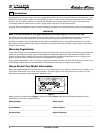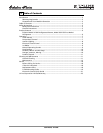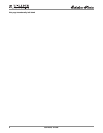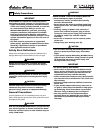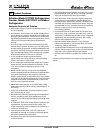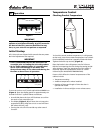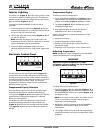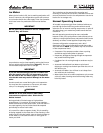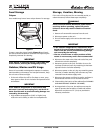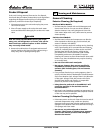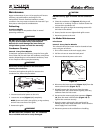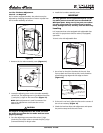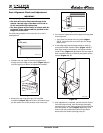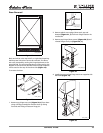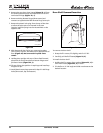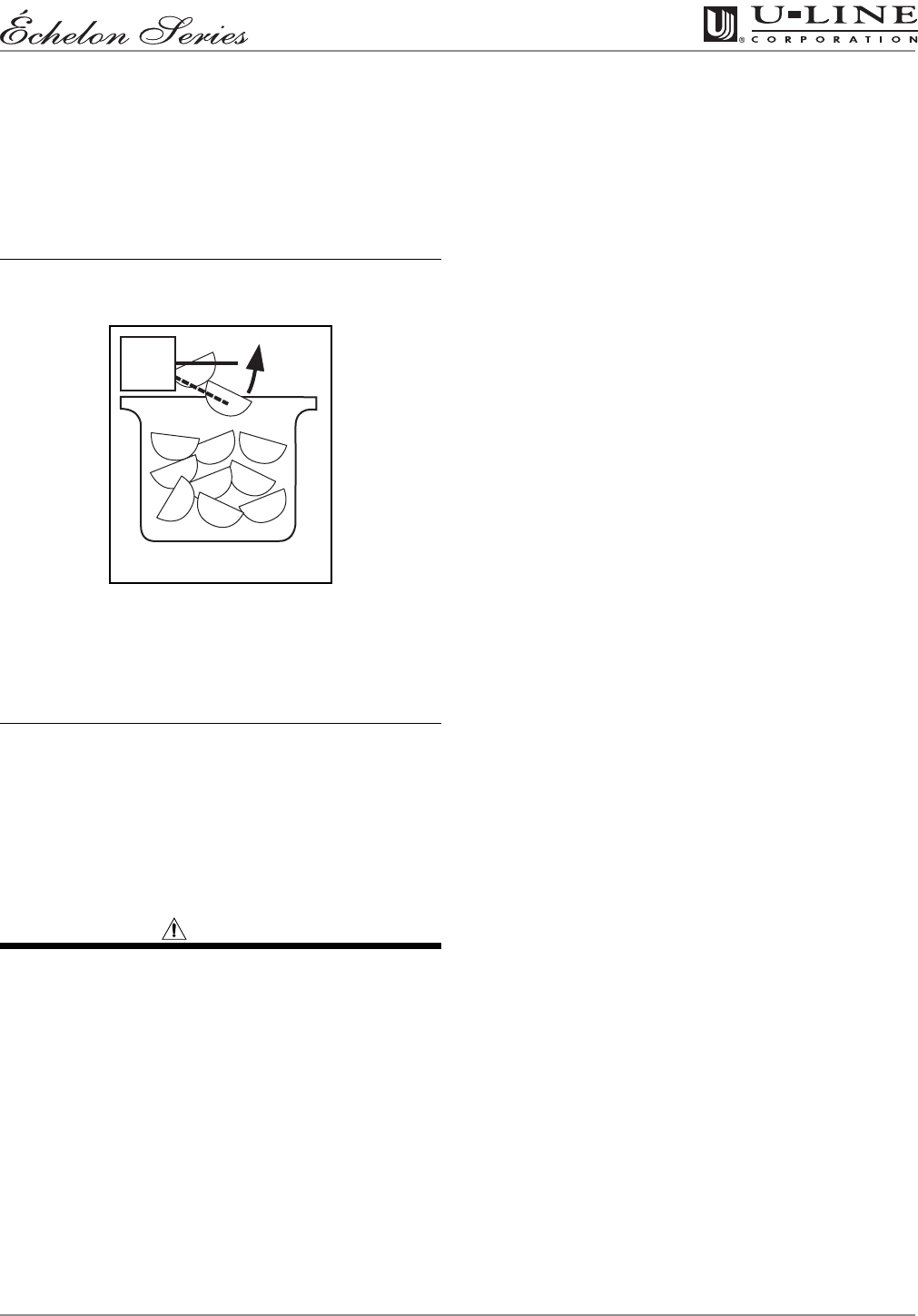
CO2175FF, 2175RF 9
Ice Maker
When the ice bucket is full, the ice making mechanism will
shut off. However, the refrigeration system will continue
to cool and maintain the cube supply. Frost-free icemaker
units have lower ice production than manual defrost
units.
IMPORTANTIMPORTANT
Do not place cans or bottles in the ice compartment
because they will freeze.
Figure 7
Ice production may be interrupted by raising the bin arm
into an upright and locked position (Figure 7). The unit
will maintain temperature for ice storage.
IMPORTANTIMPORTANT
If you are not intending to use the ice maker and
turn the supply valve off, it is imperative to raise
the bin arm of the ice maker (Figure 7). Failure to
raise the bin arm may result in damage to the water
valve.
Certain sounds are normal during the unit’s operation.
You may hear the compressor or fan motor, the water
valve, or ice dropping into the ice bucket.
WARNING
NEVER use an ice pick, knife or other sharp
instrument to separate cubes. Shake the ice
bucket instead.
During periods of limited usage or high ambient
temperatures, it is common for cubes to fuse together.
Shake the bucket to break apart cubes. If the ice maker is
not used regularly, the ice bucket should be emptied
periodically to ensure fresh cubes.
It is normal for cubes to appear cloudy. This is caused by
air being trapped in the water due to fast freezing. It has
nothing to do with the health, taste or chemical make-up
of the water. It is the same air that is in every glass of
water you drink.
The ice bucket can be removed for emptying and
cleaning. To remove the ice bucket, raise the bin arm and
remove the bucket from the ice compartment. Use the ice
bucket for ice storage only.
Normal Operating Sounds
All models incorporate rigid foam insulated cabinets to
provide high thermal efficiency and maximum sound
reduction for its internal working components. In spite of
this technology, your model may make sounds that are
unfamiliar.
Normal operating sounds may be more noticeable
because of the unit’s environment. Hard surfaces such as
cabinets, wood/vinyl/tiled floors and paneled walls have a
tendency to reflect normal appliance operating noises.
Common refrigeration components, and a brief
description of the normal operating sounds they make,
are listed below. NOTE: Your product may not contain all
of the components listed.
• Compressor: The compressor makes a hum or pulsing
sound that may be heard when it operates.
• Evaporator: Refrigerant flowing through an evaporator
may sound like boiling liquid.
• Condenser Fan: Air moving through a condenser may be
heard.
• Automatic Defrost/Drain Pan: Water may be heard
dripping or running into the drain pan when the unit is in
the defrost cycle.
• Automatic Ice Maker: You will hear ice as it drops from
the mold into the ice bin/tray.
• Water Valve: After an ice maker completes a cycle, a water
valve will make a buzzing sound and running water may
be briefly heard.
ULIN_0087_A




